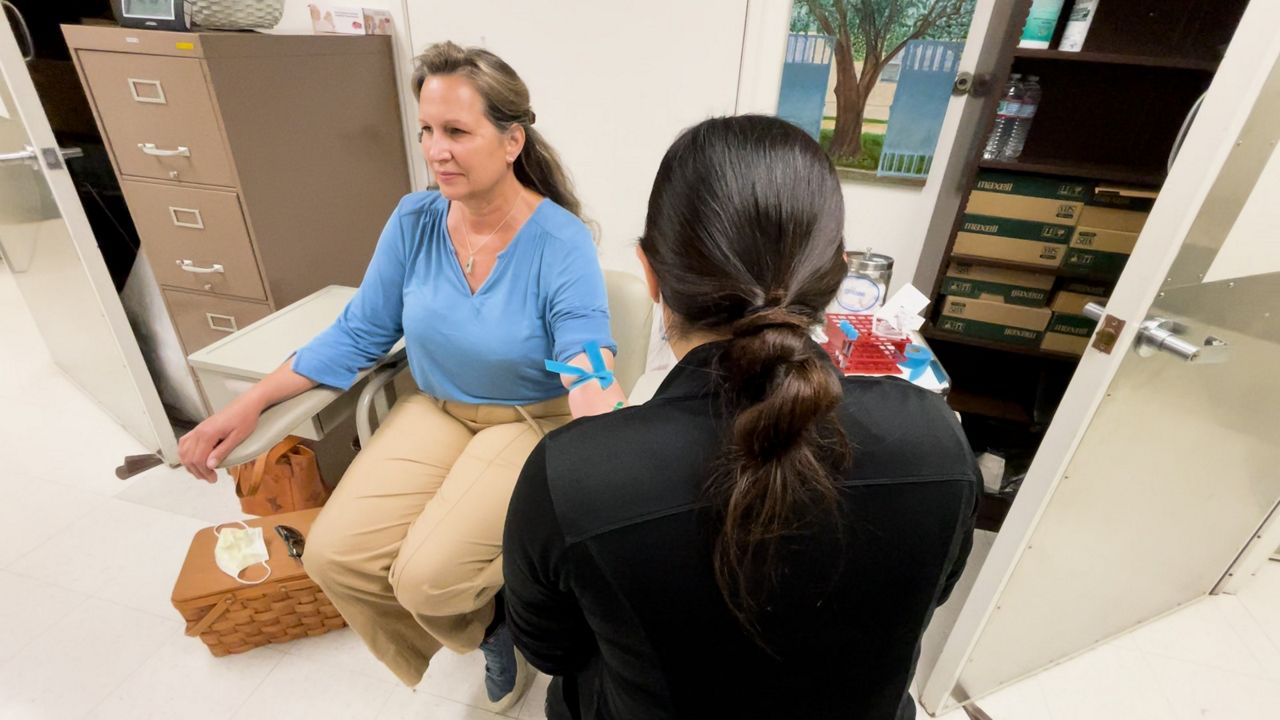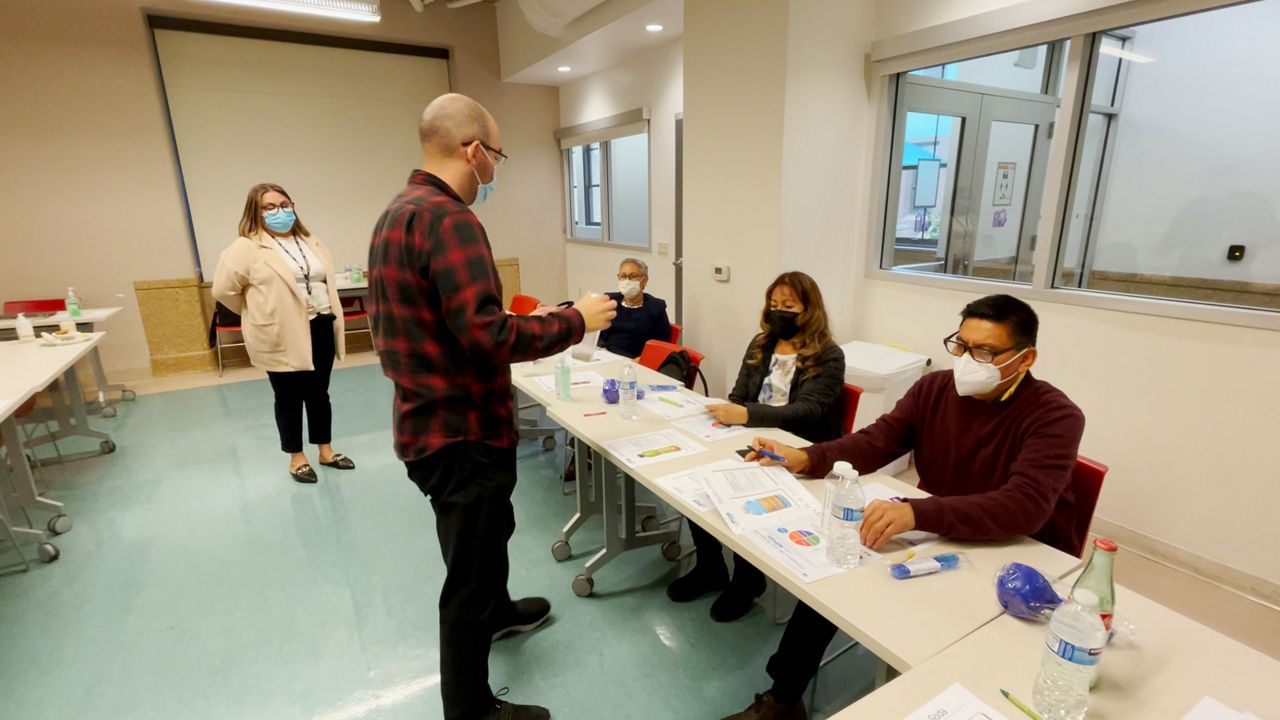When Andrea Solis was just 10 years old, her father was promoted at his job, uprooting his family from Mexico for a new beginning in America.
“Most of my early childhood years were in Mexico,” said Solis, standing in front of the U.S. Capitol this week. “But then my teens and early adulthood was formed within this country, I grew up reciting the Pledge of Allegiance, going to Fourth of July events, camping with my friends making s'mores. So there is this part of me that knows my roots. But I also have this identity that I've learned for myself within this country in the US.”
Solis, who is currently enrolled in community college and about to transfer to University of California, Davis. She was brought here legally on her parents’ work visa, making her a documented dreamer. Documented dreamers eventually age out at age 21, meaning if they can’t obtain a visa, they have to self-deport to a country they may not have lived in since a very young age.
It’s something Solis experienced back in 2020. She had to apply twice to return to the U.S.
“My visa was denied the first time and it was at someone's else's discretion. It wasn't something I did, or something I did wrong. It's just whoever was interviewing me at the time, didn't think that I deserved to be with my family,” Solis recalled of her experience. “It wasn't until a second attempt four months later, where I was stuck in Mexico not knowing what to do that [they] allowed me to come back and see my family. So going through that student visa process was challenging. It took a toll on my mental health. And it's something that I don't wish upon anyone, not even my worst enemy.”
This week, a bipartisan group of lawmaker, led by Senator Alex Padilla, D-Calif., reintroduced the America’s Children Act. The legislation is aimed at protecting the over 250,000 documented dreamers who live in the United States by creating a pathway to citizenship.
“This is more than just about immigration reform. This is about righting a moral wrong. That's a byproduct of our outdated immigration system. And it's about protecting something as sacred and as universal as the American dream,” said Padilla during a press conference.
This is the second attempt to get it through Congress. To win over skeptical lawmakers, the bill’s authors says some changes were made.
The bill in its current form requires documented dreamers to obtain permanent residency if they've graduated from a college or university and have maintained legal status in the U.S. for ten years. The previous iteration of the bill only required legal status be maintained for four years.
“We would definitely have the votes if it was put on the floor, certainly in the House, because we have more than five republicans who have signed on. As you heard from Senator Padilla, he’s really working the Republican conference to make sure that he has those 10 votes to avoid the filibuster,” said Rep. Deborah Ross, D-N.C., who is cosponsoring the bill in the House.
While the bill has a Republican co-sponsor in Sens. Rand Paul, R-Ky., Susan Collins, R-Maine, Kevin Cramer, R-N.D., and Kyrsten Sinema, I-Ariz., some Republicans remain unmoved.
Last year, staff for Senator John Cornyn, R-Texas, the ranking member on the Senate Judiciary subcommittee on immigration, pointed us to official remarks made on the record in committee on Padilla’s bill. “I’d like to work with Senator Padilla on the legislation he’s introduced to come up with a solution,” he said at the time.
After Padilla name-dropped Cornyn when re-introducing the bill, we followed up with his office once more. His staff pointed us to these remarks he made on the floor in late January.
“At this moment, the border crisis is consuming all the oxygen in the room, but this must be addressed before we'll be able to come to an agreement on any other immigration reform.”
Until legislation is passed, dreamers like Solis are in limbo.
“I don't know what else I can do to prove that I am more American,” said Solis. “It's just the paper doesn't say that. I have created amazing relationships within my community. I think I've embraced some of those American values: patriotism, to serve your community, care for your environment, for your peers, everyone. I volunteer my free time in my own community.”
“We are American and we just want to get back.”











